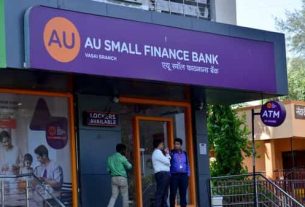Platform-based financial services for gig workers have been on the rise in many emerging markets, including India, where there is increasing diversity in the types of products being offered by platforms and fintechs to platform workers. India’s robust digital public infrastructure (DPI), called India Stack which includes its United Payments Interface (UPI) and Aadhaar (India’s universal biometric identification system) supports viable business models and innovations in credit, insurance, and a host of financial services products for harder-to-reach segments like gig workers. Such inclusive innovations leveraging gig platforms have been slower to scale in other emerging markets, making India’s experience with its DPI noteworthy for several other emerging economies where platform-based gig work is on the rise, and where governments are interested in leveraging the digitization of work for financial inclusion of informal workers.
UPI and Aadhaar offer benefits to both providers and customers
UPI drives down the cost of doing business, spurring innovation
Most platform workers have earnings deposited into digital accounts and through UPI, India’s instant interoperable payments solution, fintechs or financial service providers (FSPs) can easily deposit payments (loan disbursements or insurance payouts) and collect payments (loan repayment, premiums, or automated savings) from these digital accounts, with significantly lowered costs for cash deposit and cash collection. The
For instance, Ola Insure, the insurance arm of ride-hailing company Ola, has a quarterly insurance product for their drivers that, in addition to reducing the amount of premiums due at one time, gives drivers the option to only pay for the quarter in which they are driving, solving for some drivers’ cash flow challenges. According to Pranshu Diwan, Head of Insurance for Ola Insure, “UPI as a mode of payment reduces the costs of running our business and makes it possible for us to redesign products. This is a simple, yet crucial first step in product innovation.”
“UPI as a mode of payment reduces the costs of running our business and makes it possible for us to redesign products. This is a simple, yet crucial first step in product innovation.”
Pranshu Diwan, Head of Insurance for Ola Insure
UPI also enables easy collections from platform workers even when they do not have digital platform earnings in a specified period. It gives the platform worker the option to make a payment from an alternative digital source of funds. Giving the customer the option to make hassle-free digital payments from a digital account of their choice, not necessarily tied to platform earnings, helps the lender manage risk as they are able to easily collect irrespective platform earnings. It allows the worker to make loan repayments from non-platform earning sources when they are unable or choose not to work on the platform.
e-Know Your Customers (eKYC) requirements allow for quicker processing time
Even if workers have digital accounts, they must still do KYC steps to enroll in a financial account. e-KYC in India relies on Aadhaar for remote, paperless, and instant verification of customer identity. For the customer, e-KYC translates to quicker processing and turnaround time as well as a more hassle-free process.
Dvara Money, a neobank offering wealth management to the urban underserved, has been able to redefine financial services for platform workers through Banking as a Service (BaaS). Its CEO, Pramod Ghorpade, says, “Innovative tools such as e-KYC and UPI have streamlined processes, reducing both cost and time, and further simplifying the financial journey of our customers. By leveraging the sophisticated digital rails that India has to offer, we have managed to provide comprehensive financial inclusion solutions for platform workers across the country.”
Financial sector regulators signal innovation is encouraged
The Reserve Bank of India (RBI) and the Insurance Regulatory Development Authority of India’s (IRDAI) support for fintech innovation is evident through their regulatory sandboxes that encourage players to test new products within defined parameters while giving the regulator a view on cutting-edge developments and any consumer protection or systemic issues that may arise. Without such efforts, traditional processes for product development may prevail and limit the speed at which digital products come to market. Most insurance regimes, for instance, still require signing in, in-person and disallow free insurance products, both of which preclude truly embedded insurance policies.
Government commitment gets ecosystem participants to collaborate
The government’s recommendations to accelerate access to finance and provide safety nets for platform workers signals this is a high-priority area, which in turn spurs rich conversations among ecosystem players on the need for relevant financial products for platform workers and countless efforts aimed at filling them. “India’s highly committed financial institutions like SBI AMC, Nippon, and HDFC Pension are looking to build a sustainable mass-market for small-ticket pension and investment products,” says Parul Seth Khanna, co-founder of pinBox Solutions, a social pensiontech focused on designing, building and deploying inclusive, digital micro-pension systems tailored for excluded and informal worker segments. “The Indian government and Pension Fund Regulatory Development and Authority (PFRDA) are equally determined to bridge India’s gigantic pension coverage gap – especially among excluded self-employed women and young platform workers” she adds.
“The Indian government and Pension Fund Regulatory Development and Authority (PFRDA) are equally determined to bridge India’s gigantic pension coverage gap – especially among excluded self-employed women and young platform workers.”
Parul Seth Khanna, co-founder of pinBox Solutions
A diverse ecosystem allows for new types of partnerships and patient capital
By leveraging the advantages of India Stack, India’s financial services ecosystem is diverse and maturing, made up of platforms, fintechs, and FSPs engaging in different types of partnerships to deliver meaningful financial services to platform workers. I Firms like KarmaLife and Entitled Solutions fulfill a specific niche in the blue-collar workforce, and deep partnerships with some of India’s biggest gig platforms allow them to successfully bring credit and insurance products to large cohorts of such workers.
India’s mature ecosystem is further supported by the presence of a funder community committed to making financial services accessible to platform workers. The availability of patient capital gives businesses the (long) runway needed to conceptualize and roll out products that meet the needs of platform workers. Anshul Khurana co-founded Entitled Solutions, a financial wellness platform focused on blue-collar workers. He says companies like his, “require sufficient patient capital to discover product-market fit (PMF) and might require multiple grueling cycles of design, iteration, and pilot.”
While the enabling environment is strong, challenges remain
Regulatory uncertainty could hinder innovation
Despite India having many of the building blocks that enable the conditions for inclusive innovation, there are some challenges. While the RBI’s Digital Lending Guidelines document was introduced with the intention of protecting customers from harmful lending practices, it has also resulted in businesses revisiting and modifying their business models. In the absence of clarity on what is permitted, fintechs and FSPs tend to take a wait-and-see approach, slowing down and de-prioritizing experimenting. For Pramod Ghorpade of Dvara Money, “while frequent regulatory adjustments can potentially dampen innovation by creating a certain degree of uncertainty, the changes are viewed as opportunities and resulted in a recalibration of their business models.”
“While frequent regulatory adjustments can potentially dampen innovation by creating a certain degree of uncertainty, the changes are viewed as opportunities and resulted in a recalibration of their business models.”
Pramod Ghorpade, Dvara Money
Use of platform work data for the delivery of financial services can be improved
Second, while platforms are generating volumes of work-related data, so far, data sharing is not as seamless or standardized as it could be, bringing down the efficiency of leveraging existing data trails. For the most part, platforms set out collecting data for their own internal purposes – systems were never designed for data to be consumed externally via APIs. It is, however, still early days and we are already seeing changes that will only be amplified as the ecosystem evolves and matures.
The road ahead looks promising
The financial services for platform workers space in India is rapidly transforming. As the enabling DPI continues to evolve, the opportunities also increase. UPI 2.0 allows for recurring payments with an e-mandate, which impacts the business case as well as customer experience. As ecosystem support continues to strengthen, so do the multi-player efforts aimed at offering solutions.



